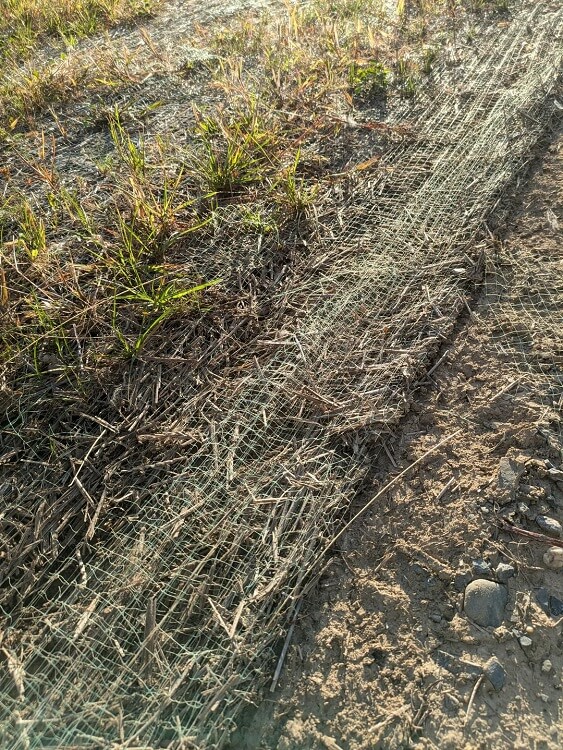One Reddit user recently turned to the r/landscaping subreddit for advice after discovering a bunch of plastic netting partially buried in the ground.
"This plastic was put down last winter over dirt at a construction site next to a permitted nature preserve," the poster wrote. "Is it meant to never be removed after grass is grown in? All summer long the landscaping company has mowed over it and it's shredding into small plastic everywhere."


The accompanying photos show a tangled mass of plastic netting in the dirt, which appears to be some sort of erosion control product. As many commenters pointed out, the harms that these products cause vastly outweigh the benefits.
"That stuff is straight evil," one commenter wrote. "It's meant to stabilize soil and retain moisture by holding in to straw so grass can grow. They say it biodegrades, but it's typically buried so the Ultraviolet light does reach it. So there's plastic in the soil forever. And burrowing animals get caught in them, tangled up, and strangled and suffocated or just shredded to pieces trying to escape. This stuff should be banned permanently."
"I've got pictures of my wife and I freeing snakes caught in this crap. It's really negligent to use this product," another Redditor wrote.
"Remove it yourself. Dispose of it properly. Stop using it, or letting companies use it on your property in the future. It's an insane practice," another commented.
To recap, erosion control netting sheds microplastics into the soil, traps and kills wild animals, and does not degrade as advertised.
As far as the intended purpose of the product, controlling erosion, it turns out that nature has developed its own form of erosion control: plants.
All plants, to varying degrees, help to keep soil in place by growing their roots into it. There is no good reason to buy a plastic product and install it in nature to accomplish things that nature can already do itself.
Of course, this will not stop companies from using deceptive and misleading marketing tactics to make people think that they need to buy huge plastic sheets or nets and bury them in the soil. But, as a great rule of thumb: If it's made out of plastic, there are better alternatives out there, especially when it comes to the outdoors.
Join our free newsletter for easy tips to save more and waste less, and don't miss this cool list of easy ways to help yourself while helping the planet.









